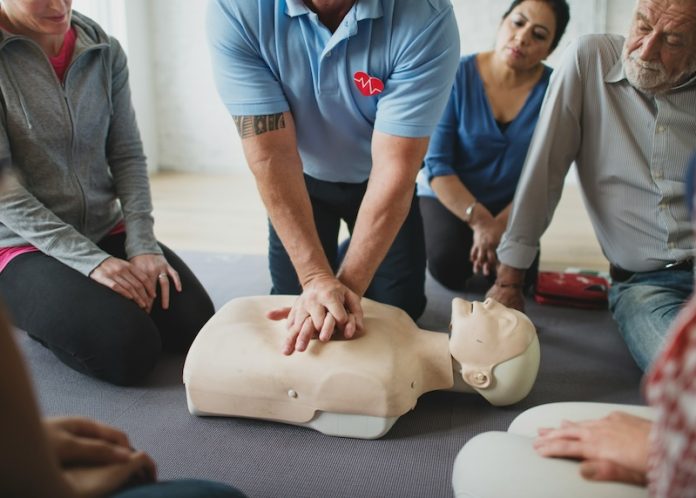
New research highlights the life-saving importance of starting CPR as soon as possible when someone has a cardiac arrest, whether at home or in public.
The study, presented at the American Heart Association’s Resuscitation Science Symposium, found that CPR performed within the first two minutes of an out-of-hospital cardiac arrest gave people the best chance of survival and of retaining their brain function.
Even if CPR was delayed up to 10 minutes, people still had better survival rates and a greater likelihood of avoiding brain damage compared to those who received no assistance.
Dr. Evan O’Keefe, a cardiovascular fellow at Saint Luke’s Mid America Heart Institute, emphasized the importance of quick action in emergencies.
He stressed that widespread CPR training and accessible automated external defibrillators (AEDs) could play a key role in saving more lives.
Each year in the U.S., about 350,000 cardiac arrests occur outside hospitals, with a survival rate of less than 10%. Bystander CPR can greatly improve these odds by helping keep blood flowing to the brain and other vital organs.
The study used data from the Cardiac Arrest Registry to Enhance Survival (CARES) to analyze 198,869 cases of witnessed cardiac arrests between 2013 and 2022.
The findings revealed a clear relationship between how quickly bystander CPR was started and the patient’s chances of survival.
Compared to those who received no CPR, people who received help within two minutes had an 81% higher chance of surviving and a 95% greater chance of avoiding serious brain damage.
Even with a delay of up to 10 minutes, CPR was still beneficial, with a 19% increase in survival rates and a 22% increase in the likelihood of preserving brain function.
On the other hand, bystanders who started CPR more than 10 minutes after cardiac arrest did not improve survival chances compared to those who received no CPR at all.
About 12% of people who did not receive bystander CPR survived to leave the hospital, and just over 9% avoided severe brain damage or disability.
Dr. Anezi Uzendu, a cardiologist and cardiac arrest survivor, reinforced the importance of recognizing cardiac arrest quickly and acting immediately.
“Time is of the essence when a cardiac arrest occurs, and late interventions can be as ineffective as no intervention,” he said, underscoring the need for community education and empowerment to increase the odds of survival.
Dr. O’Keefe added, “Every second counts when starting bystander CPR. Even a few minutes of delay can make a big difference. If you see someone in need of CPR, don’t hesitate—your quick actions could save their life.”
If you care about stroke, please read studies that diets high in flavonoids could help reduce stroke risk, and MIND diet could slow down cognitive decline after stroke.
For more health information, please see recent studies about antioxidants that could help reduce the risk of dementia, and tea and coffee may help lower your risk of stroke, dementia.
Copyright © 2024 Knowridge Science Report. All rights reserved.



